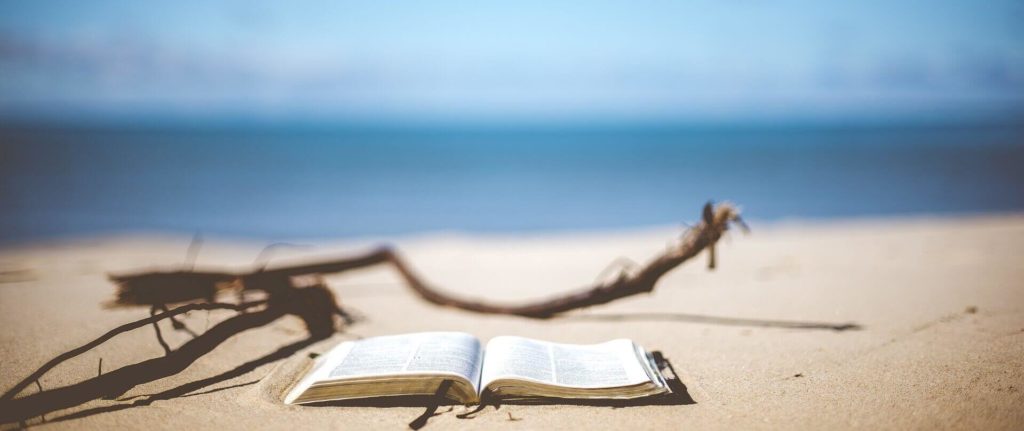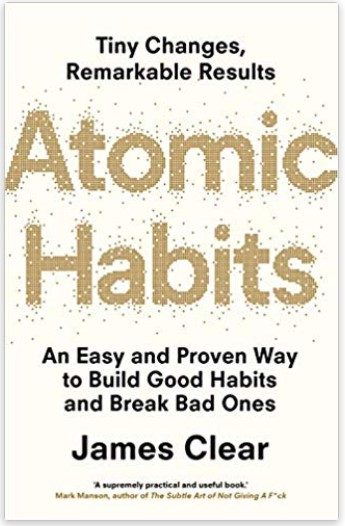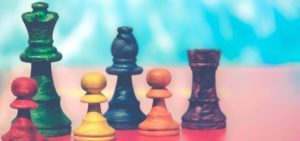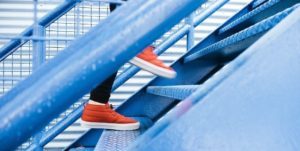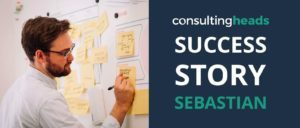Finally summer, finally vacation, finally time to read! Still looking for interesting inspiration for your vacation reading? Bill Gates won’t let you down and once again gives you some exciting book tips. Furthermore, we do not want to withhold our bonus recommendation from you.
We have already explained why you should also read books as a consultant. If, like Bill Gates, you always tend to take more books with you on vacation than you can actually read, we’ve added a couple of quick reading techniques for you. Here we go!
5 current book tips from Bill Gates
The books Bill Gates recommends to you are, as usual, quite challenging reading material. Four nonfiction books, one novel, and a common thread running through all the book recommendations: Upheaval with a touch of optimism is the main theme. The content is about a global reassessment of our economic system, the Soviet Union immediately after the Bolshevik Revolution, and the United States in wartime.
For those looking for some lighter reading, by the way, Gates recommends Graeme Simsion’s Rosie Trilogy: The Rosie Project, The Rosie Effect, The Rosie Result. These are international RomCom bestsellers about the strange and charming genetics professor Don, who is looking for true love.
If you still haven’t found the right book for you, check out our article: 5 books that Bill Gates says you should read. Have you browsed through them yet?
But now to the current tips:
1. upheaval by Jared Diamond
Upheaval examines how societies respond in times of crisis. In doing so, author Diamond breaks down the insights from crisis therapy into 12 success factors and explains why some people successfully navigate crises. From this, he creates a series of fascinating case studies of how nations (Australia, Chile, Finland, Germany, Indonesia, and Japan) have emerged even stronger from existential crises such as civil wars, foreign threats, or general malaise.
At the end of the book, Diamond looks to the future. He outlines some of the biggest challenges currently facing the world – from climate change to political polarization – and considers how we can use the 12 Success Factors to address them. It shows that there are ways through the crisis.
To the detailed review of Bill Gates
To the original edition on Amazon | To the German edition on Amazon
2. the Future of Capitalism by Paul Collier
The Future of Capitalism is a thoughtful look at a topic that matters to many people right now. GDP growth and average lifespans show that more and more people are living more luxuriously than ever before. And yet, the capitalist system that produced these developments is increasingly being called into question. Is the individualistic approach going too far? The system is in crisis.
The development economist analyzes the problem: the gap between wealth and poverty, between urban and rural areas, between high and low educational strata is widening. Collier also takes the more difficult next step. He tries to find possible solutions and asks the question: What can we do as individuals, families, companies and the state?
To the detailed review of Bill Gates
To the original edition on Amazon | To the German edition on Amazon
3. a gentleman in Moscow by Amor Towles
A Gentleman in Moscow is the only novel on Gates’s list. In a funny, clever and surprisingly optimistic way, Russian history is told from the point of view of one man. Towles’ novel begins with Count Rostov being sentenced to life in house arrest in a Moscow hotel. It is 1922 and the Bolsheviks have just taken power over the newly formed Soviet Union.
The book follows the Count for the next thirty years as he makes the most of his life despite his limitations and political turmoil. Count Rostov is an observer frozen in time, watching changes come and go. If you’re interested in Moscow, Russian history, or political upheaval in general, A Gentleman in Moscow is a must-read according to Bill Gates!
To the detailed review of Bill Gates
To the original edition on Amazon | To the German edition on Amazon
4. presidents of war by michael beschloss
In Presidents of War , Beschloss examines how presidents of the United States dealt with the greatest conflicts* between the turn of the 19th century and the 1970s. The book thus covers a broad spectrum of American history and makes it possible to gain important overarching insights into the leadership of each president. It is about the different roles during the war, the backgrounds and how each war is linked to its predecessor.
The conflicts and their presidents:
- the war of 1812 (James Madison)
- the Mexican-American War (James Polk)
- the Civil War (Abraham Lincoln)
- the Spanish-American War (William McKinley, Theodore Roosevelt)
- the First World War (Woodrow Wilson)
- the Second World War (Franklin Roosevelt and Harry Truman)
- the Korean War (Dwight Eisenhower)
- the Vietnam War (Kennedy, Johnson and Nixon)
5. Nine Pints by Rose George
Nine Pints (the title refers to the volume of blood in the average adult) is a non-fiction book filled with interesting facts about the most vital “liquid organ” we all share: Blood. Did you know, for example, that blood flow in the modern human brain is 600 percent higher than in its predecessor? Or that the market for trading human and animal blood is worth more than $20 billion a year, making blood the 13th most traded commodity?
The author is interested in the subject because of her own life history and illness (premenstrual dysphoric disorder (PMDS)). Her research takes her all over the world: to a plasma clinic in Canada, an HIV clinic in South Africa and to African slums where half the girls have to prostitute themselves to afford menstrual pads. But it’s also about positive aspects around blood: George writes about blood tests and life-saving innovations that will make diagnosing diseases easier and faster in the future.
Video: 5 Books to read this summer (Bill Gates)
As a consultant, you often have to handle several tasks at the same time in your fast-paced everyday life. In a span of just five minutes, you continue to work on your project, check your email, keep an eye on your smartphone, and interact with colleagues. This type of ADHD-like behavior causes stress levels to rise and lowers your productivity.
When you read a book, on the other hand, you have to give your complete attention to the story. Otherwise, you will not be able to follow the plot. By doing this regularly, your brain won’t unlearn how to focus on just one thing. So next time you have a short break, better pick up a book! You’ll get more out of it than when you’re in front of Netflix, smartphone in hand, scrolling through social networks.
consultingheads bonus recommendation: Atomic Habits by James Clear
You finally want to read regularly, exercise or stop smoking completely? Want to get out of consulting and start your own business? You want to change something in your life, become more productive, more motivated and happier? Especially as a consultant you have little time in your stressful everyday life and often no head for such additional aspirations.
But what if your morning workout came as easily to you as brushing your teeth after getting up? Or would reading on the train have become as second nature to you as shifting into third gear? Clear shows you how to achieve even the biggest goals of your life by making tiny changes and incorporating small habits into your tiny changes and incorporating small habits. It’s about how you manage to get 1% better every day – for example, doing two more push-ups a day, getting up five minutes earlier, or reading just one more page a day.
With these 4 tips you can multiply your reading speed
If, like Bill Gates, you’re also more interested in non-fiction, it’s worth getting into the habit of the following speed-reading techniques. With it you will manage to multiply your reading speed and absorb the information faster. Then, for prose or novels, which are less about absorbing information quickly and more about enjoying every word, you can always return to your normal reading speed.
Tip 1: Read the table of contents and the back of the book
On the back of the book you will get a brief insight into the book and in the table of contents you will be introduced to the structure and the most important topics. By reading these sections, your brain is already familiarizing itself with the most important points. This will help you understand the book faster and thus read it faster.
Tip 2: Read the first and last sentence of each paragraph and skim the rest
The first sentence of a section usually tells you briefly what the section is about. The last sentence then sums it up again. By reading these sentences carefully, but only skimming the intermediate part, you increase your reading speed without losing important information.
Tip 3: Trace the text with your finger or a pencil
Did you know that your eye automatically jumps back and forth when you read? For example, your eye understands the sentence “I read fast” as follows: “I…I read…I read fast”. You are not consciously aware of this, but you lose valuable time as a result.
By tracing the text with your finger or a pen, you give your eye a guide. As a result, it will stop bouncing back and forth. If you then move your finger even faster than you would actually read, you force your brain and eye to adjust to the speed. It will be a bit tiring at first, but you will quickly get used to the new pace.
Tip 4: Don't "quietly" say in your head the words with
Since you speak slower than you think, your reading speed also slows as you pronounce the words in your head while you read them. This so-called sub-vocalization you should, if possible, get out of the habit to increase your reading speed.
Well, were you able to pick up a few reading and book tips? We hope you have a few free days ahead of you and wish you a relaxing summer vacation!
